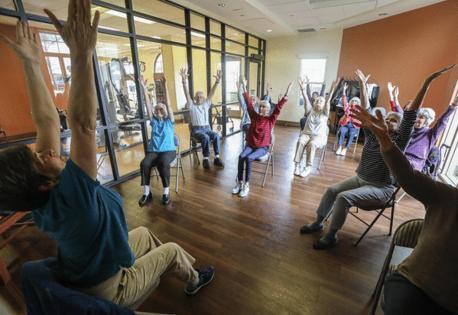Steve Lopez: As some nursing homes cry poverty, what can be done about increased staffing requirements?
Published in Lifestyles
If you suspect that you or a loved one might one day end up in a nursing home, and you breathed a sigh of relief when the Biden administration announced increased staffing requirements on April 22, you may need to pull a Larry David and curb your enthusiasm.
Biden's follow-through on an earlier promise was applauded by many, given the dark history of substandard care and chronic staffing shortages that have led to unconscionable levels of suffering and even death. But will the nursing home industry actually do the hiring, or repeat the refrains that it can't afford to without higher government reimbursement rates, or that it can't find enough new employees?
It didn't take long for the protesting to begin.
Mark Parkinson, president and CEO of a health care association representing 14,000 nursing homes, slammed the Biden administration for imposing "this unfunded staffing mandate despite overwhelming concerns from experts, stakeholders, and policymakers on both sides of the aisle."
Then came the doomsday prediction, with Parkinson claiming the mandate "threatens to shut down more nursing homes, displace hundreds of thousands of residents, and restrict seniors' access to care."
That's an interesting perspective, given the fact that while the hiring pool may be too small, there's no shortage of investors lining up for a piece of the profits generated by nursing homes. Profits that are filtered, if not shielded, using elaborate financing schemes.
(In March, KFF Health News reported that "for-profit groups own about 72% of the roughly 15,000 nursing homes in the United States, which serve more than 1.3 million residents." In addition, "900 not-for-profit nursing homes and senior living communities nationwide have changed hands [since 2015], with more than half of them acquired by for-profit operators.")
I asked David Grabowski, a Harvard University professor of health care policy, for his take on the Biden administration's new rules.
"The minimum staffing rule is an important step forward. However, for this rule to work, it can't be implemented in a vacuum," Grabowski responded in an email. "If nursing homes are unable to hire additional workers, we need to understand if this is because they can't afford to due to low Medicaid payments or because they are hiding profits in related party transactions."
And that would require, in Grabowski's opinion, "stronger data transparency and accountability measures" from the Biden administration.
...continued
©2024 Los Angeles Times. Visit latimes.com. Distributed by Tribune Content Agency, LLC.







Comments